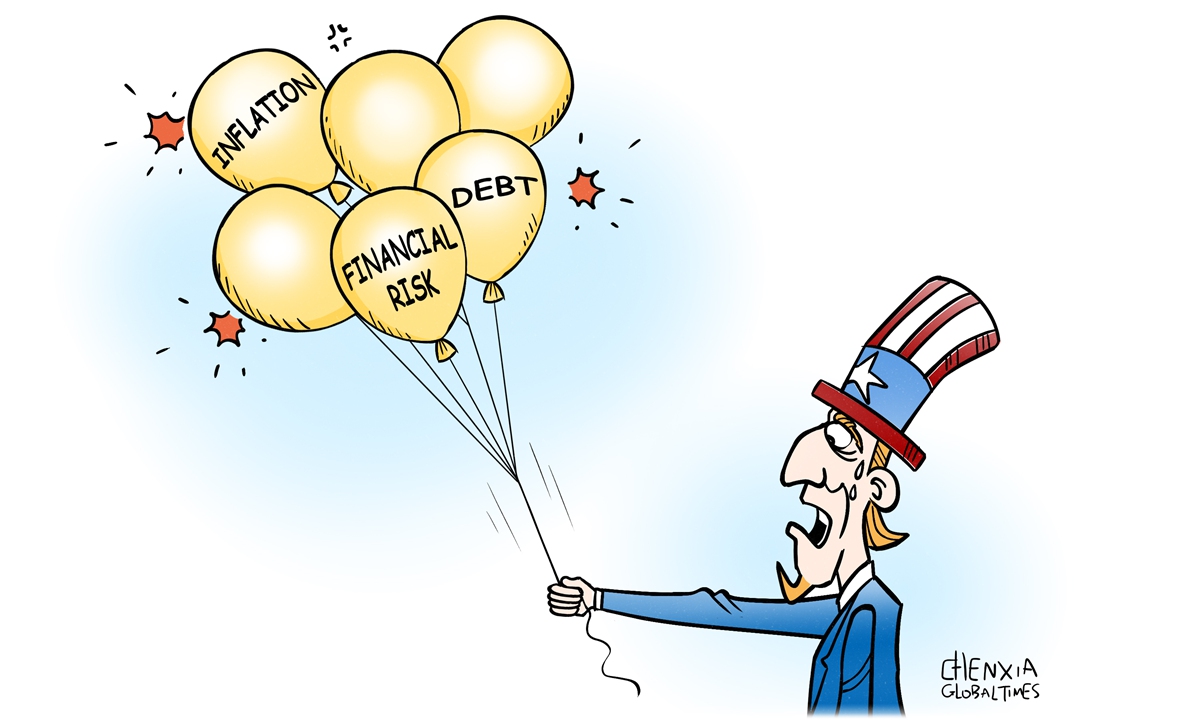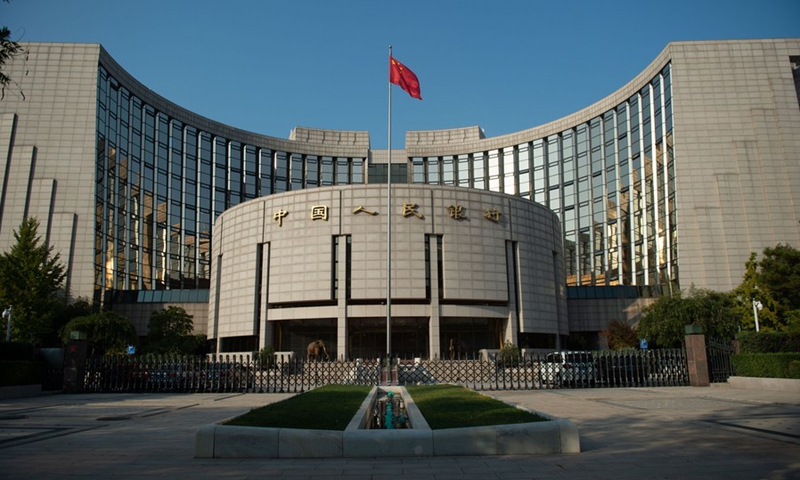
Illustration: Chen Xia/Global Times
As global markets closely watch the monetary policy meeting of the US Federal Reserve (Fed) on Tuesday and Wednesday, US policymakers find themselves facing a dilemma over whether to raise interest rates again. Any inappropriate policy decision could trigger a sudden eruption of financial risks that have accumulated from the aggressive rate hikes aimed at curbing inflation.The Fed earlier signaled there may be one more interest rate hike this year. However, it is widely anticipated that the Fed will hold interest rates steady this week. Either continuing with rate hikes or prematurely ending the historic rate hike campaign that started in March 2022 could potentially touch the red line of financial risks or further weigh down the US economy.
In order to tame soaring prices, the Fed has raised interest rates at the fastest pace in 40 years to a 22-year high of 5.25 to 5.5 percent, which has pushed the cost of credit for US households and enterprises to an unbearable level. According to a new Harris Poll conducted for Bloomberg News, 57 percent of middle-class Americans think higher interest rates are having a negative effect on their household finances.
If the Fed chooses to continue raising rates, further increasing borrowing costs for US businesses and households, it will undoubtedly drag down US economic growth.
However, entering a rate-cutting phase prematurely would also be disadvantageous for American businesses, as inflation in the US is still severe. Consumer prices rose 3.4 percent year-on-year in September, while core prices - which exclude food and energy - were up 3.7 percent, which is still too hot for the Fed.
Fed officials have said for more than one year that beating inflation could require them to hold interest rates higher for longer than investors expected. The swift run-up in long-term Treasury yields - to around 5 percent from 4 percent in early August - suggests that Wall Street now agree, according to the Wall Street Journal. As borrowing costs for US businesses and households are rising, the cumulative financial risks cannot be ignored.
The US bond market is experiencing the severe sell-off, and the US stock market has also experienced a significant decline in recent months. The benchmark Dow Jones Industrial Average has dropped more than 3,100 points from its August high.
The pressure that the aggressive rate hikes of the Fed incurred to the US financial markets cannot be instantly alleviated. This year, three small and medium-sized banks in the US have failed, with Silicon Valley Bank's failure having a significant impact. The Fed and the Federal Deposit Insurance Corp guarantee all depositors, preventing the risk from spiraling out of control and avoiding further bank runs. However, this measure only temporarily controls the risk rather than resolving it.
The Fed is now being particularly cautious when making decisions to continue raising interest rates, and it is anticipated to start cutting rates from next year. This is because the continued rate hikes have increased pressure on the US financial system, exacerbating the already heavy debt burden.
The US interest rate level is approaching the limit that the financial system can bear, and further rate hikes would greatly increase the probability of a financial crisis, which would have spillover effects on the global economy. All economies should be prepared to respond to the impact.
Chinese investors have reportedly sold off US stocks and bonds. China has been reducing its holdings of US Treasury bonds for four consecutive months, reaching a new 14-year low. As financial risks in the US economy loom, it is natural for Chinese investors to sell off US stocks and bonds. If US financial risks continue to accumulate, it is believed that the pace of China reducing its holdings of US bonds could continue.
China, as any other country, has no obligation to bear the financial risks of the US. The potential for China to further reduce its holdings of US Treasury bonds is also related to current issues in the China-US economy, especially the stubborn "decoupling" of the US from the Chinese economy and its containment of Chinese companies.
The author is a reporter with the Global Times. bizopinion@globaltimes.com.cn



